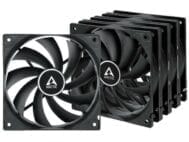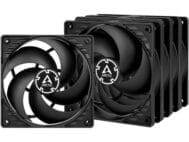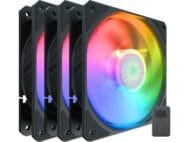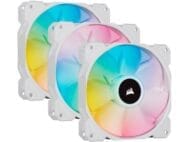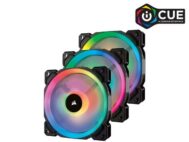Case Fans
The Unsung Heroes of a Cool and Quiet System
While often overlooked, PC case fans play a vital role in maintaining a healthy and efficient computing environment. They circulate air within your computer case, drawing in cool air and expelling heat generated by components like the CPU, GPU, and motherboard. Proper airflow is crucial for preventing overheating, ensuring stable performance, and prolonging the lifespan of your hardware.
Showing all 11 results
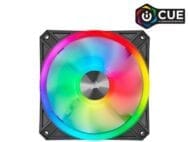
CORSAIR iCUE QL120 RGB Single Pack
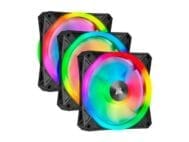
CORSAIR iCUE QL120 RGB Triple Pack
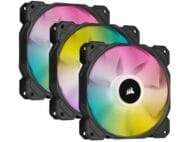
CORSAIR iCUE SP120 RGB ELITE Triple Fan
Choosing the Right Case Fans
Selecting the right case fans involves understanding a few key factors:
- Size and Compatibility: Case fans come in various sizes, typically 80mm, 120mm, and 140mm. Ensure the fans you choose are compatible with the fan mounting locations in your computer case.
- Airflow (CFM) and Static Pressure: CFM (Cubic Feet per Minute) measures the volume of air a fan moves, while static pressure indicates its ability to push air through resistance (e.g., heatsinks, filters). Choose fans with higher CFM for general airflow or higher static pressure for cooling components with restricted airflow.
- Noise Levels (dBA): Fan noise can be a significant factor, especially in quiet environments. Look for fans with lower dBA ratings for quieter operation. Many fans offer variable speed control to balance cooling and noise levels.
- Bearing Type: Different bearing types (e.g., sleeve, ball bearing, fluid dynamic bearing) affect a fan’s lifespan, noise levels, and performance. Fluid dynamic bearings generally offer a good balance of longevity and quiet operation.
- Aesthetics: Some case fans come with features like RGB lighting to add a touch of personalization to your build.
By carefully considering these factors and understanding your cooling needs, you can choose the optimal PC case fans to create a balanced and efficient airflow path within your system, ensuring cool and quiet operation for years to come.
